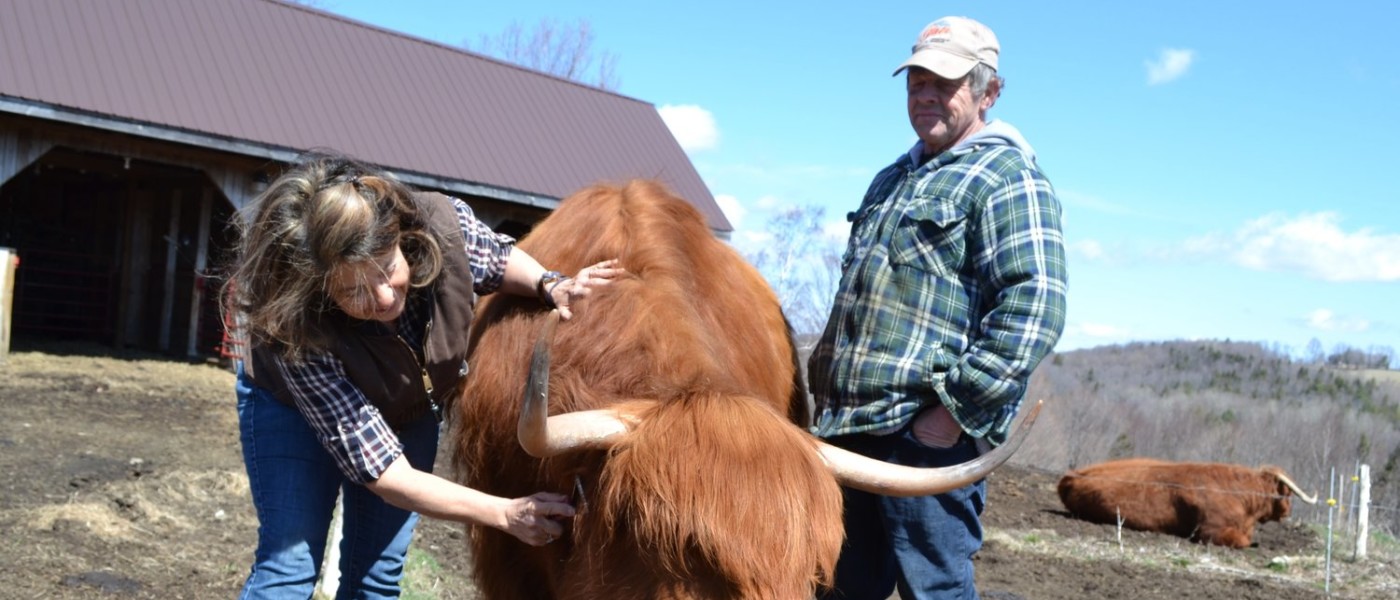Farm Aid partners with organizations all over the country to work towards our mission of creating a family farm-centered system of agriculture in America. Since our first concert in 1985, we’ve granted over $25 million to more than 300 organizations, creating a strong network of allies to keep family farmers on the land. Each year, grantees report back on what they’ve accomplished.
In May and June, many of our partner organizations wrote to us about the impact that COVID-19 was having on them and the farmers they work with. Their stories run the gamut, from creating market safety protocols to helping farmers start online stores, but all our partners showed quick thinking and collaboration to support their communities.
These two stories from The Carrot Project and The Land Connection show two organizations helping farmers cope with the closure of their usual sales channels. We’re proud to share their stories in their own words (lightly edited for clarity). Due to the rapidly changing nature of the pandemic, these stories may have evolved since we collected them. For more up to date information, check in with organization on their website.
The Land Connection
In mid-March, as Illinois began shutting down, our local agriculture advocates sprung into action.
At The Land Connection, in addition to joining with our partners and farmers to develop systems to address the cascading disruptions caused by COVID 19 to our food system, we launched a survey to assess the needs of the producers in our central Illinois community. The results of this survey and our conversations with producers pointed to a distinct desire for support in developing online stores to continue to reach consumers as access through other markets remained uncertain.
In response to this, we developed and offered a webinar for producers in early April 2020 to provide guidance for setting up a store and profile on several platforms.
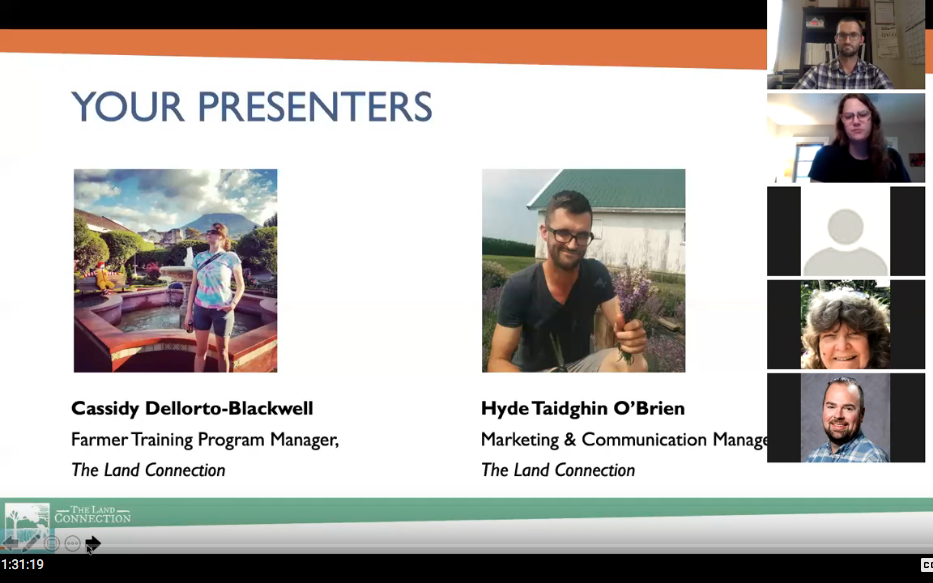
The Land Connection’s Webinar: A New(ish) Frontier: Exploring Online Direct-to-Consumer Sales Platforms for Farmers Webinar
After the webinar, we were contacted to help the farmers at Blue Moon Farm in Urbana troubleshoot getting their online store set up. While we still have a ways to go in our ability to act as tech support for farmers, we are getting better! Blue Moon was able to get their store set up and are operating it as an additional salespoint to reach customers unable to join their CSA or go to a farmers market.
We recognize that the need for this training and support still exists, and we are planning to offer more direct service to farmers to set up stores and diversify market streams to maintain farm viability and resiliency through these uncertain times.
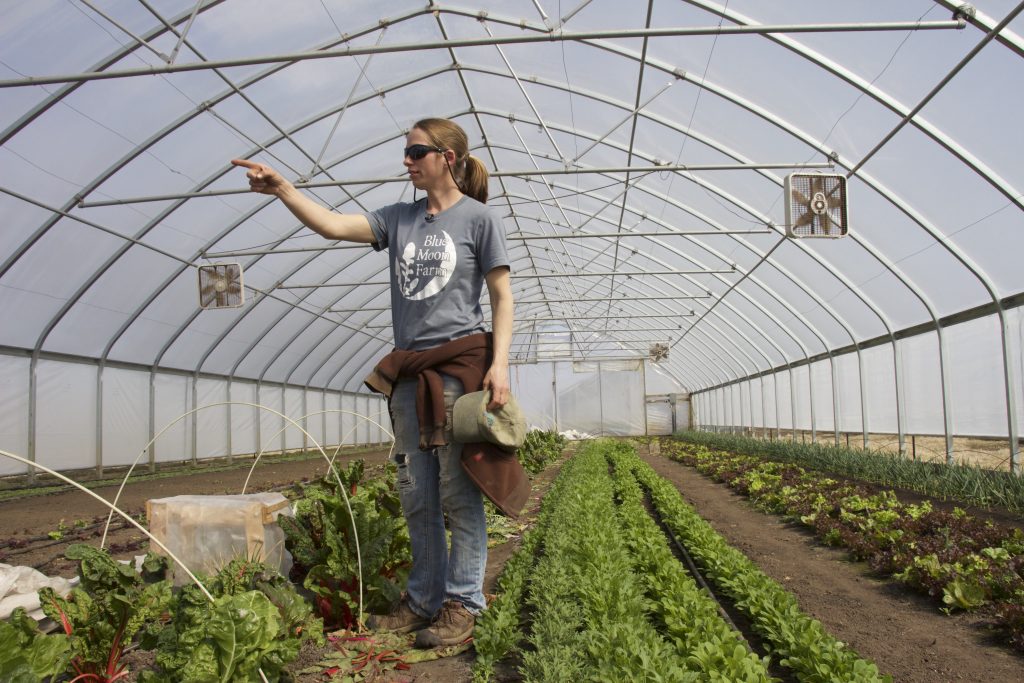
Blue Moon Farm’s Lorien Carsey, owner and farm manager, stands in the lettuce patch. Photo: Blue Moon Farm.
The Carrot Project
Ray Shatney and Janet Steward have been raising prizewinning Highland cattle on their family farm, Greenfield Highland Beef, in Greensboro Bend and Plainfield, Vermont, since 1967. In 2010, they took out a loan for a tractor backed by The Carrot Project — equipment that was the right size for their property and its terrain, which is still used on the farm today. In May, Janet joined us for a virtual panel to share how COVID19 has affected small farm businesses.
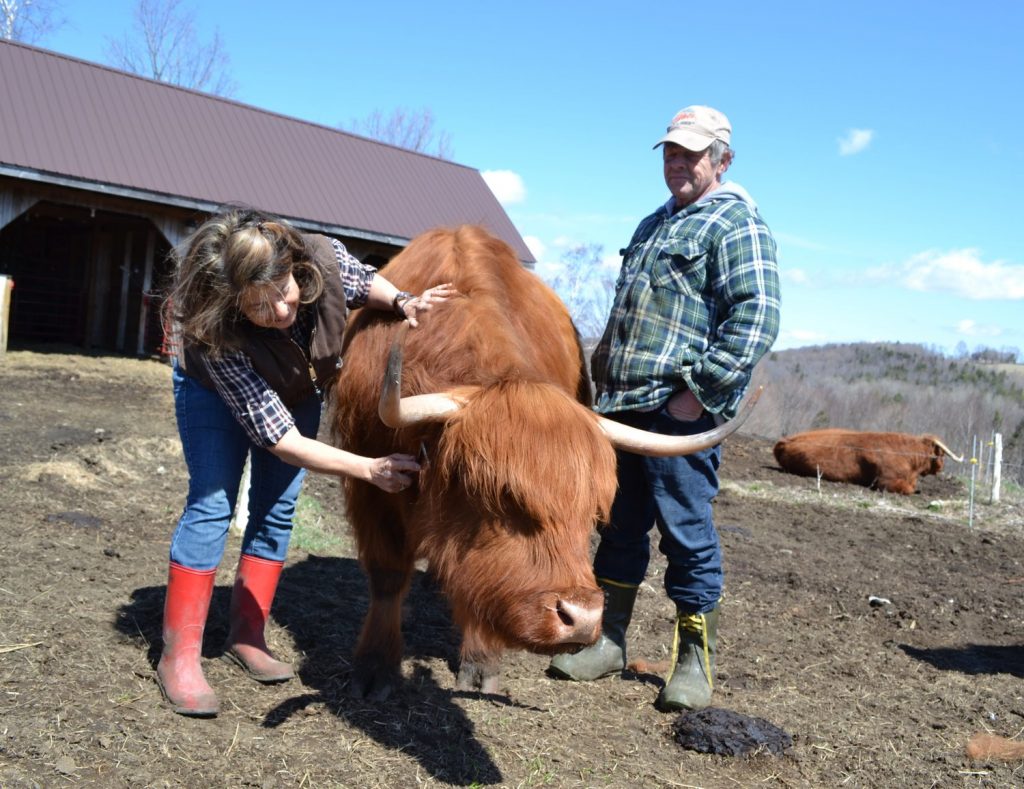
Ray Shatney and Janet Steward of Greenfield Highland Beef admire their prizewinning Highland cow. Photo: Janet Steward.
The virus “has changed most everything that we do,” she told us. That includes both selling breeding stock nationally, and meat locally. “The restaurants that we sold to shuttered; the farmer’s markets closed.” While Janet and Ray have successfully sold some frozen meat to local food coops, and started offering home delivery for self-isolated or quarantined customers, that’s not a permanent solution. “In terms of the future, we’re hoping the market stabilizes, so we can figure out how to manage supply and demand,” Janet says. “We’re just hoping we’ll be able to weather this pandemic, and come out the other side with the appropriate size herd and the appropriate amount of beef for our customers.”
“I try to make lemonade out of lemons, and this has forced me to do something I’ve needed to do for a long time, which is develop an online marketing presence.”
Like many of The Carrot Project’s clients, Janet is dealing with enormous uncertainty and new risks with creativity and resilience — and even finding silver linings. Janet is one of 13 farmers (so far) who has benefited from The Carrot Project’s rapid response to the pandemic, by participating in virtual consulting sessions. “I try to make lemonade out of lemons, and this has forced me to do something I’ve needed to do for a long time, which is develop an online marketing presence,” she said. The Carrot Project connected Janet with a marketing consultant, who called her on the phone to help her set up an online ordering platform. “This is critically important,” Janet said. “I need more time to spend with animal care instead of sitting in front of a screen 5, 6, 7 hours a day, trying to keep selling beef. I hope this online change will allow us to continue to be sustainable in the new normal, whatever that is.”
Many farmers like Janet are asking similar questions. To meet our clients’ changing needs over the past few months, The Carrot Project has switched gears from wrapping up our pre-season planning to responding to emergency business support requests due to the pandemic. To support clients who are affected by the pandemic, we are actively working to understand their needs and identify how best to support them. What we’ve learned over the past few weeks is that our clients’ responses range from frenetic to paralyzed. Their winter planning may no longer make sense. Production, markets, or labor may need to change. Our business advisors participated in an emergency business planning training; we developed a work aid to help business advisors focus their COVID19 conversations with clients; and we are constantly evaluating new and emerging resources that could benefit clients.
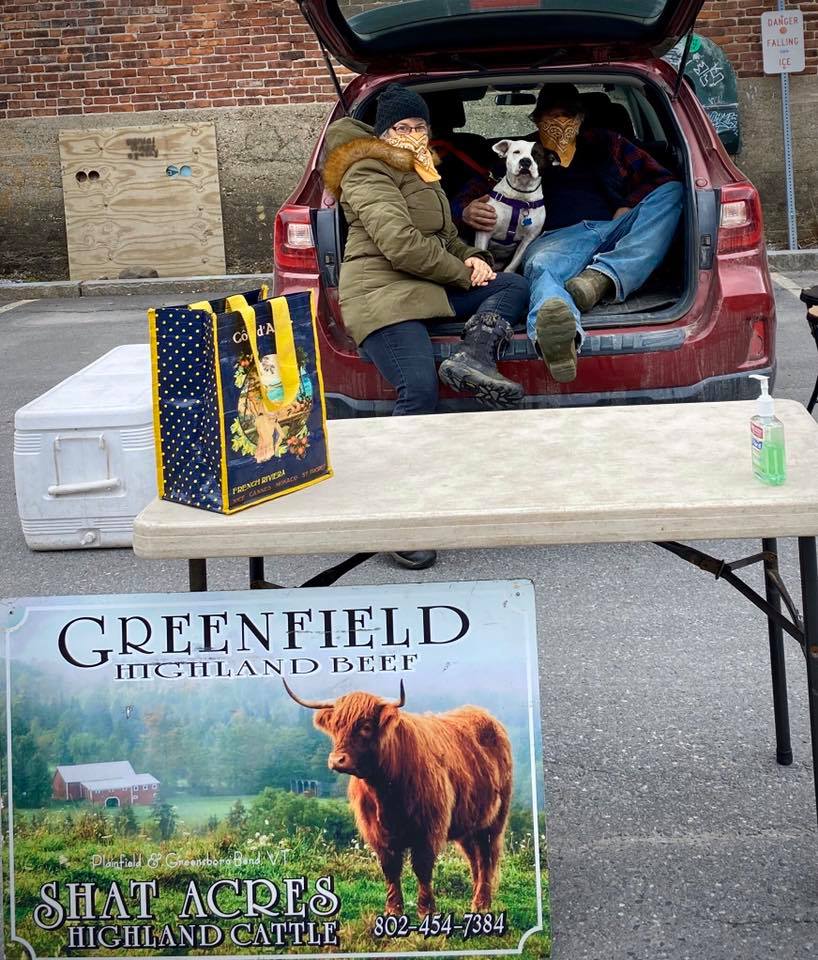
Ray Shatney and Janet Steward of Greenfield Highland Beef sell beef at a socially-distanced farmer’s market in April 2020. Photo: Janet Steward
We want the farms and food businesses that we work with today to be here in 5, 10, and 50 years from now — and right now, they need help making it through this pandemic. We do this work because their success is the foundation of a strong local food economy. For many of our producers, the pandemic is likely to impact their businesses, already new and fragile, for months to come. We are checking with them to understand their needs, holding weekly listening sessions, developing a tool to help them plan and prepare for more uncertainty than normal, and simply being available to help.
